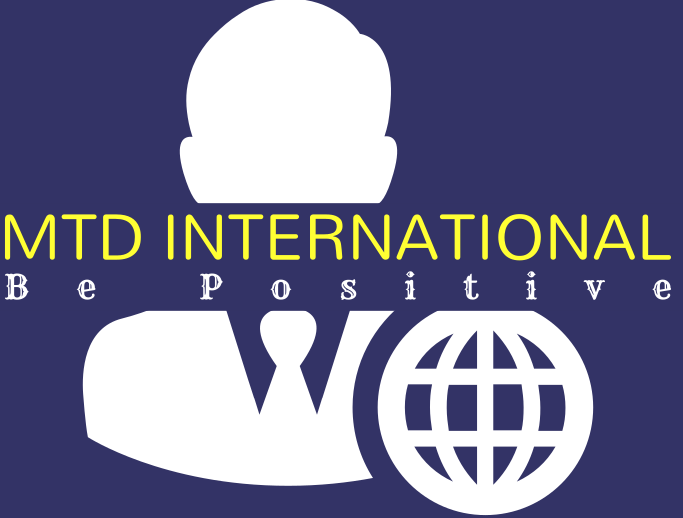"The Indian Government's Push for Control Over the Internet: Concerns and Controversies"
India is the world's second-most populous country and has one of the largest and fastest-growing internet user bases. In recent years, the country has seen a surge in online activity, particularly in the areas of e-commerce, social media, and digital entertainment. However, India's government has expressed concerns about the unregulated nature of the internet and its potential to spread misinformation and promote illegal activities. As a result, the government has proposed a series of measures aimed at increasing its control over the internet, a move that has raised concerns about censorship and the erosion of civil liberties.
The Indian government's efforts to regulate the internet have been driven by several factors. One of the main concerns is the spread of fake news and misinformation. India has witnessed several instances of violence and social unrest sparked by rumors and hoaxes spread on social media platforms. The government has also expressed concerns about the use of the internet to promote hate speech and extremist ideologies.
Another factor driving the government's push for control over the internet is the need to combat cybercrime. India has seen a rise in cyberattacks in recent years, and the government has been criticized for its inability to prevent or prosecute such crimes. The government believes that increased control over the internet will allow it to better monitor and track criminal activities online.
The Indian government has proposed several measures aimed at tightening its grip on the internet. One such measure is the Intermediary Guidelines and Digital Media Ethics Code, which was introduced in February 2021. The guidelines require social media platforms to appoint a compliance officer, a grievance officer, and a nodal contact person in India. They are also required to remove content flagged by the government within 24 hours and trace the origin of messages deemed to be harmful or illegal.
The guidelines have been met with criticism from free speech advocates who believe that they will lead to censorship and limit freedom of expression. The guidelines have also been criticized for being too vague and for placing too much responsibility on social media platforms. Critics have argued that the guidelines could lead to a chilling effect on free speech, as platforms may choose to err on the side of caution and remove content that is not necessarily illegal or harmful.
In addition to the intermediary guidelines, the government has also proposed several other measures aimed at increasing its control over the internet. One such measure is the Information Technology (Intermediary Guidelines and Digital Media Ethics Code) Rules 2021. The rules require social media companies to provide information about the origin of any message or content within 72 hours of receiving a request from the government. The rules also require social media platforms to disable access to content deemed to be illegal or harmful.
The rules have been met with opposition from both social media companies and civil society groups. Social media companies have expressed concerns about the burden placed on them to police content, while civil society groups have criticized the rules for being too broad and for giving the government too much power to censor and control online speech.

The Indian government has also proposed a data protection bill, which aims to protect the privacy of citizens' personal information. The bill requires companies to obtain consent from users before collecting and processing their data. It also imposes penalties on companies that fail to protect user data or misuse it.
The data protection bill has been welcomed by privacy advocates, who believe that it will provide much-needed protections for citizens' personal data. However, the bill has also been criticized for being too weak and for not providing enough safeguards against government surveillance and data misuse.
In addition to these measures, the Indian government has also proposed a national internet registry, which would give it control over the allocation of internet protocol (IP) addresses in the country. The move has been criticized by experts who believe that it could lead to censorship and the blocking of websites deemed to be undesirable by the government.
The Indian government's push for control over the internet has raised concerns about the erosion of civil liberties and the impact on freedom of expression. Critics argue that the government's efforts are aimed at curbing dissent and limiting criticism of the government. The government has been accused of using its control over the internet to silence opposition voices and suppress dissent.
The government's efforts to control the internet have also been met with opposition from international human rights organizations. In a joint statement issued in February 2021, several organizations, including Human Rights Watch and Amnesty International, expressed concern about the impact of the intermediary guidelines on freedom of expression and the right to privacy. The statement called on the Indian government to review the guidelines and ensure that they do not violate international human rights standards.
The government's efforts to control the internet have also raised concerns about the impact on the Indian economy. The country's thriving e-commerce sector and burgeoning digital economy have been credited with driving economic growth and creating jobs. The government's measures to increase control over the internet could lead to a decline in investor confidence and a slowdown in economic growth.
The Indian government's push for control over the internet is not unique. Several other countries, including China and Russia, have also sought to increase their control over the internet. The trend has been described as "digital authoritarianism," and it has raised concerns about the erosion of civil liberties and the impact on democracy and human rights.
In conclusion, India's government wants total control of the internet, and it has proposed several measures aimed at increasing its control over the online activity. While the government's efforts are driven by concerns about the spread of fake news, cybercrime, and the need to protect citizens' privacy, critics have raised concerns about censorship, the erosion of civil liberties, and the impact on freedom of expression. The government's efforts have also been met with opposition from international human rights organizations and concerns about the impact on the Indian economy. As India continues to grapple with the challenges posed by the internet, it remains to be seen how the government's efforts to increase its control will play out in the long term.










.jpg)
0 Comments